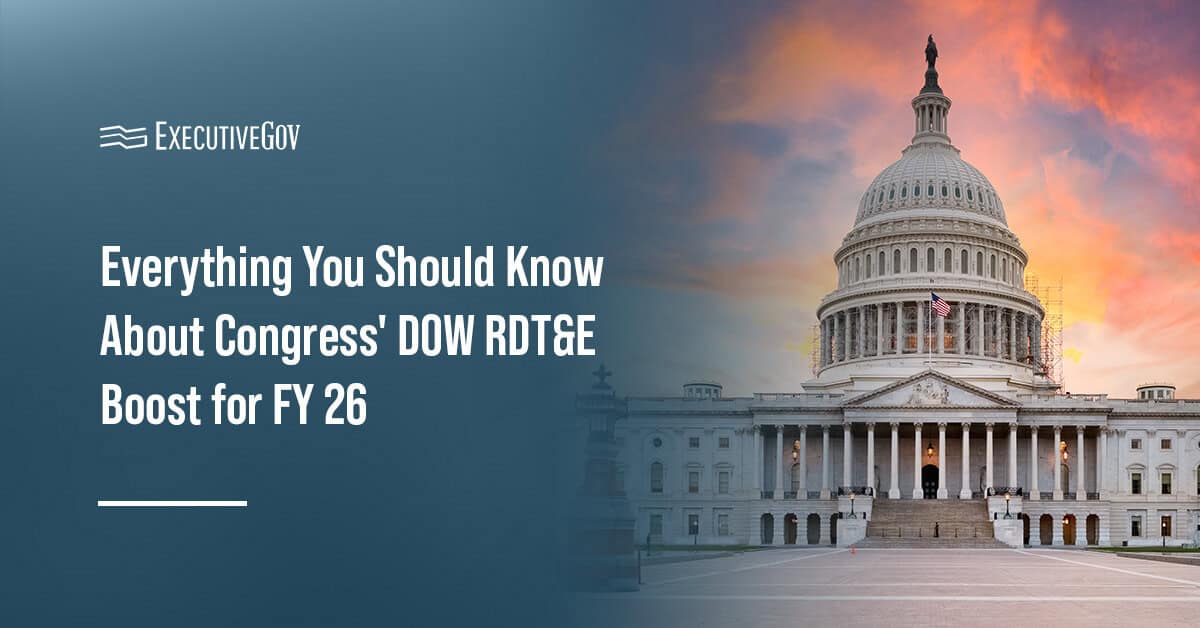Did you know that according to the Small Business Administration (SBA), 99.9% of all businesses in America are considered small businesses and employ 41.7% of the global workforce? That number is very high, which is safe to say that several people likely reading this currently own or want to start small businesses.
The impact of government regulations on small business owners is experienced daily, and these regulations are constantly changing, making it difficult for them to keep up. Let’s look at some of the most common government regulations and see how they can affect them.
Table of Contents
What are government regulations?
Government regulations are laws typically found in the Internal Revenue Code, the Employee Retirement Income Security Act (ERISA), and the Health Insurance Portability and Accountability Act (HIPAA). In addition to these federal regulations, laws from state and local governments affect small businesses.
For example, California law requires employers with 50 or more employees to provide medical and family leave. The category and line of your business determine which regulations are relevant. Also, if your company operates across state borders and in other countries, you must comply with different sets of laws.
What is the importance of government regulations?
The federal government uses two vehicles to impose policy goals. The first is the spending program, where the IRS is responsible for compulsory tax collections and revenues allocated for the necessary public functions like roads, schools, law enforcement, research and development, Medicare, Social Security, and more.
The next is regulations where federal agencies are responsible for carrying out standards for the public’s benefit, protection, employment nondiscrimination, environmental concerns, and the safety of food and drugs.
The objectives of the two are favorably accepted. A safe environment, food, and drugs and fair business practices are what Americans deserve from the government. After all, these goals are primarily supported by conservatives, liberals, and others. However, disagreements cannot be avoided especially when the opinion, interests, and values of the masses significantly differ; this is where the government authority stands out.
Why are small businesses most affected by government regulations?

Small businesses are the backbone of American economic growth; they pay taxes, create jobs, and support local communities. However, when it comes to complying with laws and regulations that govern their operations, they usually face these challenges and other legal obstacles:
Lack of resources
Small companies are more affected than large corporations because they often don’t have the resources to hire lawyers and other professionals to help them navigate the completed requirements of federal, state, and local regulations.
Ongoing challenges
Small businesses are more vulnerable to economic downturns because they lack employees to support themselves during difficult times. Federal regulations can also make it harder for small business owners because they have less capital available for costs like building permits and licensing fees, resulting in lost productivity and fewer startups.
It costs small businesses
Small businesses also tend to be more affected by environmental regulations than giant corporations because they don’t have as much money to maintain clean facilities or prevent pollution from nearby communities.
For example, if you own a small convenience store and have just enough money left after paying the bills every month, you will unlikely spend thousands of dollars on new air filters or expensive cleaning equipment if one breaks down in your store. But if you’re operating on a large scale like Walmart, the costs wouldn’t be too much of a problem.
What are solutions for small businesses affected by the current and future regulations?

Small businesses have to keep up with changes in their industry, find new customers and employees, and ensure their businesses are profitable. They also have to deal with a wide range of federal regulations affecting their businesses and employees.
Employers must comply with federal laws that cover everything from worker safety to discrimination, payroll taxes, health care benefits, unemployment insurance, and worker’s compensation premiums. Here are some ways small businesses can deal with these regulations:
Learn what’s required by law
Many government agencies regulate different aspects of running small businesses, including labor, tax, and environmental protection agencies. It would be best to learn what these agencies expect from employers before establishing a new business to avoid fines, penalties, or even lawsuits that can cause financial hardship.
Get help
Small companies may not have the resources or expertise needed to comply with all government agencies’ regulations. Still, they can research on their own or hire a lawyer specializing in employment laws or tax issues that can help navigate these rules.
Be transparent in making decisions
The regulators should be transparent in making decisions. They should also be unbiased and base it on technical information. Peer review by independent experts is essential too, as it helps ensure that regulations are based on a sound basis. Small businesses can also participate in the process by submitting comments on the proposed rules, attending public hearings, and testifying.
The Small Business Regulatory Enforcement Fairness Act (SBREFA) requires agencies to provide interested small businesses and other parties with an opportunity to comment on new proposed rules. The Office of Information and Regulatory Affairs (OIRA) at the Office of Management and Budget (OMB) coordinates the review of agency draft rules under SBREFA.
Adopt the trial and error procedure
The best way to deal with federal regulations is to have a trial and error method. This means when a new policy is to be implemented, it can be changed if there are problems. The policy should also be implemented in small increments, so if that does not work well, it can be reversed easily.
Regulations must be made at the levels of state and local governments for natural experiments. This will allow businesses to see what works best for their area and help them determine how they can comply with the regulations while still making profits and staying competitive in their industry.
Adjustments in the administration
Cutting costs is one thing the government administration needs to improve. Agencies should start
- streamlining decision-making processes
- reducing paperwork
- providing more information for those concerned
- reducing court challenges
- providing a sufficient amount of time for businesses to comply with the long list of regulations while making it constant for an extended period to allow enterprises make investment decisions.
Rule out unnecessary regulations
Some regulations must be eliminated when proven unnecessary or outdated. This can be done by analyzing the impact of current regulations on businesses and the economy. For example, OSHA has removed a few regulations that don’t contribute to employees’ health and safety and health. Additionally, 469 other proposed business regulations were withdrawn.
How do small business regulations cause problems?

Small businesses are like large companies that are heavily government-dependent for their economic growth. This can make them especially vulnerable when local governments enact regulations that make it harder for them to do business.
Fixed costs
The cost of regulatory compliance can be a problem for small businesses because most of them don’t have enough capital to pay for all necessary expenses associated with compliance, such as equipment upgrades, additional training, and employee wages. So, they may have to absorb these costs by reducing other expenditures such as advertising and hiring new employees.
In 2008, Crain and Crain stated the estimated distribution of regulatory compliance is $10,585 for businesses with less than 20 employees and $7,755 for businesses with more than 499 employees, which is a disproportionately large burden on small businesses.
Direct compliance costs
These are the expenses incurred, including direct labor and materials costs like legal fees associated with getting advice and hiring an attorney on how to comply with the law. These also require additional paperwork, reporting, and keeping records. Compliance costs can be burdensome to some industries but may be minimal for others. For example, media industries spend an average of $7.7 million yearly, while financial services spend over $30 million yearly.
Indirect costs
Companies incur these costs because of a regulation’s impact on their business environment. The direct effects are redirection and reduction in research and development efforts. For example, economists identified major indirect costs arising from such regulations in the transportation industry, such as:
- Rates were becoming cheaper in some parts of the country and too expensive for other areas.
- Dynamic losses are caused by delays in innovation when the new technology takes longer to get approved.
Relocation
Some companies relocate their production facilities to other countries with fewer regulations or do not regulate some products. For example, many technology product companies have moved their production facilities to other countries with low labor costs, cheaper labor, and fewer regulations like China, India, Malaysia, India, and Mexico.
Lack of competition
Lack of competition is a direct effect of relocation. This can lead to fewer suppliers and higher costs because they can charge more for goods and services without fear of losing customers to other suppliers who might offer lower prices or better benefits.
Creates delays
Companies already struggling financially may delay investments in new equipment or hiring because they are not sure how much they’ll have to spend on compliance costs under new laws or regulations. This can result in lost productivity over time and cause delays in product development and sales opportunities due to the lack of resources available for investment decisions.
What are the benefits of government regulations?
Regulations can be both good and bad for a business. Those that apply to your industry may affect how you do business and how much money you make. Here are some reasons why regulations are beneficial for companies and consumers:
Protect consumers
Protecting consumers from poor products, services, or business practices is one of the top benefits of government regulations. For example, if a small business fails to pay private-sector workers their overtime wages, the Department of Labor may investigate the matter.
Similarly, if a company sells a product that’s unsafe to use or has been recalled due to safety concerns, the Food and Drug Administration (FDA) can issue a warning about its use or recall it.
Protect the environment
Many countries have laws that protect the environment from pollution or destruction. In many cases, these laws require companies to obtain permits before engaging in activities that could harm the environment. For example, a mining company needs to follow Clean Air Act regulation that involves dust, facilities, and other heavy equipment emissions.
Promote innovation
Government business regulations can promote innovation by protecting investors’ intellectual property rights, ensuring that new ideas can be commercialized, and protecting against unfair competition from foreign companies who don’t follow similar state and local regulations.
Save on lawsuits
Government business regulations help reduce costs for some businesses by eliminating wasteful spending on frivolous lawsuits, fines, and fees. For example, suppose a company has a good record of compliance. In that case, it can avoid costly lawsuits from disgruntled customers who want compensation for injuries caused by the product or service they purchased.
Which federal regulations have the most impact on small businesses?

The following list highlights some of the most significant federal regulations affecting small businesses:
1. Advertising regulations
Marketing is important for expanding a business’ network. However, the government has imposed laws regarding advertising. This is to ensure that businesses stay honest in their marketing campaigns. Once determined that a company has altered, omitted, or added information, it can be penalized.
In addition, the goal of the Federal Trade Commission is to keep an eye on business advertisements online with specific regulations to prevent consumers’ sensitive information during electronic transactions. Lastly, the Fair Packaging and Labeling Act ensures that all businesses remain truthful to their product’s ingredients, list them in order, and provide accurate nutritional information.
2. Federal tax code
The federal tax code is the most important regulation because it consists of thousands of pages with a few pages nearly undecipherable. Tax laws and regulations can also impact your personal finances and financial health. If you don’t know how to interpret these rules, you can lose out on valuable deductions and credits. According to an NBSA survey in 2015, 60% of the administrative burdens come from dealing with business taxes.
3. State licensing requirements
The Occupational Safety and Health Administration (OSHA) is a federal agency that regulates workplace safety. It sets standards for the workplace, provides training and resources for employees, especially those who work in a hazardous environment, and penalizes companies that violate its rules.
For example, occupational licensing has an impact on small businesses. Requirements for a license vary by state and typically involves paying a fee and passing an exam to demonstrate competence in a certain field of work.
Doctors and dentists must obtain an occupational license before practicing medicine. However, according to a report, it frequently increases client costs, and licensing restrictions don’t seem to improve the quality of professional services.
4. EPA’s expansion of the Clean Water Act
EPA’s expansion of the jurisdiction was initially passed in 1948. It regulates pollution control in America’s rivers, lakes, and streams. The law was expanded in 1972. This means many more small businesses are required to obtain federal permits that could amount to thousands of dollars for any construction or development projects near these bodies of water.
5. Overtime pay rules
A total of 1.2 million employees will be eligible for overtime (OT) pay and minimum wage under the new regulation of the U.S. Department of Labor. This is due to the rule doubling the salary threshold where OT pay is required. Employees who earn more than $55,440 annually are qualified for OT pay. Also, employees above the said salary can be exempted from OT pay requirements as long as their job duties are met.
What are small business advocates?

Small business advocates are at stake in the successes of small businesses.
- They may be members of a local chamber of commerce.
- They provide support for local businesses and help with marketing, financing, or other areas of concern for a small business owner.
- They promote policies that help small businesses thrive, such as lower corporate tax rates, regulations that don’t burden small businesses, and higher minimum wages.
The National Federation of Independent Business (NFIB) is one of the oldest and largest business advocacy groups representing independent and small businesses on a federal level. It lobbies on behalf of its members on issues ranging from taxes to health care to immigration reform.





